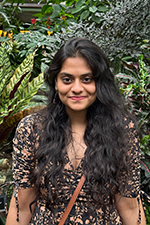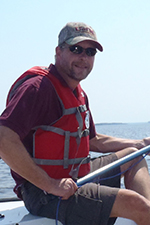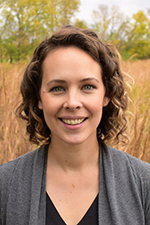Description of the Webinar:
A discussion with three experts about navigating and cleaning messy data. We will be talking about overcoming challenges with messy field data, techniques for cleaning and preprocessing data, the role of AI in handling unstructured data, and real-world case studies and examples. Our speakers include Sreya Vadapalli from Rogers Behavioral Health; Leif Olmanson, a Research Scientist at the University of Minnesota; and Laurie Nowatzke from the U.S. Department of Agriculture (USDA) Agricultural Research Service (ARS). Additionally, we will provide essential advice for aspiring data scientists. Don’t miss this opportunity to learn from seasoned professionals about managing and leveraging data effectively.
Date and Recording:
Tuesday, June 4, 2024
11:00 a.m.–12:00 p.m. CT
Presenters:

Sreya Vadapalli is a Research Associate II at Rogers Behavioral Health. Sreya is a dedicated professional with a fervent interest in the intersection of data science and healthcare. She is an ardent biotechnologist with a background in data analytics, recently graduating with a master’s degree in Analytics from Rutgers University. As a recently started Research Associate II at Rogers Behavioral Health, she is excited to delve into this journey and learn applying data science and statistics to drive evidence-based healthcare practices and personalized treatment approaches. Her role involves conducting research focused on leveraging algorithms in areas such as public healthcare, precision medicine, and healthcare economics. As someone deeply passionate about advancing healthcare through research, Sreya has had the opportunity of contributing to several publications in journals, including:
1. Artificial intelligence and machine learning approaches using gene expression and variant data for personalized medicine. Briefings in Bioinformatics (Oxford Academic) Link
2. Artificial Intelligence, Healthcare, Clinical Genomics, and Pharmacogenomics Approaches in Precision Medicine. Frontiers in Genetics Link
3. RNA-seq-driven expression analysis to investigate cardiovascular disease genes with associated phenotypes among atrial fibrillation patients. Clinical and Translational Medicine Link
Sreya is particularly passionate about contributing to nonprofit organizations and advancing research for better patient outcomes and accessible quality care for overlooked communities. Looking ahead, she aspires to bridge the gap between Medicine and Data Analytics and bring about a positive change in the field of healthcare.

Leif Olmanson is a Research Scientist at the University of Minnesota, with over 25 years of experience developing remote-sensing applications to create temporally and spatially rigorous water and land resources datasets for large-area ecosystem characterization. He is particularly interested in developing field-validated image-processing methods implemented in automated geospatial-analysis systems such as Google Earth Engine and Minnesota Supercomputing Institute’s supercomputers to gain a better understanding of the natural environment. He led a team of researchers and computer scientists to build a system capable of near-real-time water quality monitoring for Minnesota’s 10,000+ lakes, using satellite imagery to provide critical water quality information for lake and fisheries management. The team is currently expanding the system to other areas.

Laurie Nowatzke is the Coordinator of the Midwest Climate Hub in Ames, Iowa. In this role, she maintains the Hub’s partnerships, coordinates interdisciplinary projects, and communicates current tools and resources on climate-smart strategies. Prior to joining the Hub, Laurie served as a project coordinator of water quality research and outreach at Iowa State University. Laurie holds a BS degree in Biological Sciences from Wright State University, an MA degree in Environmental Policy from Boston University, and a PhD in rural sociology from Iowa State University. Her PhD research examined the perspectives, barriers, and attitudes of Midwestern farmers who indicate willingness to adopt conservation practices in the future.
